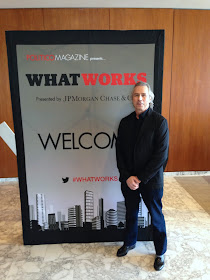A city’s tech marketability hinges on the embrace of its own history, a cluster of industry experts said Wednesday, rather than an attempt to mirror its neighbors.
Chicago presents a prime example of a city working to resurrect its image from manufacturing mecca to tech hub. “The truth is, today capital is everywhere,” and not just Silicon Valley’s Sand Hill Road, said Howard Tullman, CEO of 1871, a Chicago hub for digital start-ups.
Panelists pointed to the city’s economic history, its close-knit neighborhoods and a willing administration as reasons for initial success — even if it has a way to go before earning the “Silicon Lake” title.
“Chicago is very unique in its clustering theme,” said Maria Katris, CEO of Built In, a network of digital communities that seeks to promote entrepreneurs and innovators. “It’s close knit physically and virtually.”
The country’s third largest city, Chicago ranks eighth in U.S. tech jobs. It counts Groupon, a popular coupon site, and GrubHub, an online food ordering company, among them. GrubHub made news on Wall Street this month when it shocked analysts with a strong initial public offering.
Chicago Mayor Rahm Emanuel has keyed on tech in his economic development initiative. The city last year released its first technology plan, which attempts to promote job growth and make government more efficient.
But Chicago, like many other towns with tech ambitions, still struggles to match Silicon Valley’s entrepreneurial zest and its ingrained permission to “break things.”
Tech companies tend to gravitate toward areas with an educated workforce and financial incentives, something the Rust Belt has traditionally lacked. Such factors present obstacles as the administration seeks to create “manufacturing innovation hubs” that transform former factories into tech start-ups.
These cities also deal with the underlining tension that technological ingenuity — think robots — may mean fewer jobs.
Some models, Katris warned, just won’t work. “You need a government that is the microphone of the community,” she said.
While the panel praised Chicago, America as a whole didn’t get as high a grade.
“The U.S., in a way, neglects vast stretches of urban terrain,” Sassensaid.
A problem, she added, that hasn’t escaped Chicago.
Read more: http://www.politico.com/magazine/story/2014/04/what-works-chicago-talks-tech-jobs-105523.html#ixzz2yR7WYlw5





